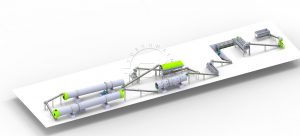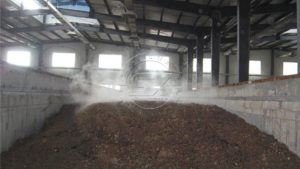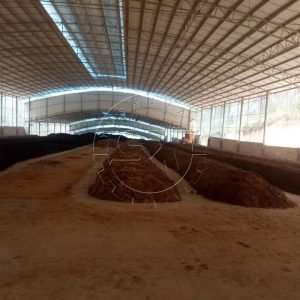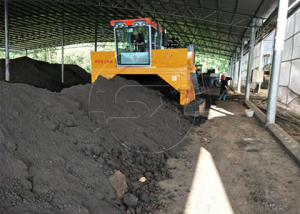Starting your own NPK fertilizer production line can be a rewarding venture that contributes to the agricultural sector. By producing balanced nutrient blends, you can enhance crop growth and ensure sustainable agricultural practices. Here’s a comprehensive guide to help you embark on setting up your NPK fertilizer production line.

granulation fertilizer production to manage chicken manure
]Firstly, conduct thorough market research to understand the demand and competition in your region. Analyze the target market, identify potential customers, and assess their specific needs. This information will shape your product range and marketing strategies.
Next, secure the necessary licenses and permits required to establish a fertilizer production facility. Contact local regulatory agencies and comply with safety, health, and environmental regulations. These permits will ensure the legality and credibility of your operation.
Once the legal aspects are in order, select a suitable location for your production facility. Consider factors such as proximity to raw material suppliers, transportation access, and availability of utilities like water and electricity. Adequate space for storage, processing, and packaging is also essential.

npk fertilizer making plant
The core component of an NPK fertilizer production line is the formulation of the nutrient blends. Develop formulas that cater to different crop types and growth stages. Balancing the proportions of nitrogen (N), phosphorus (P), and potassium (K) is crucial to meet plant requirements. Consult agronomists and soil experts to fine-tune your formulations for optimal results.
Next, secure reliable sources of raw materials. Common ingredients include urea, ammonium nitrate, superphosphate, and potassium chloride. Establish long-term contracts with reputable suppliers to ensure a steady supply chain. Quality control is paramount, so conduct regular tests to ensure the raw materials meet your specifications.
Invest in the necessary equipment for the production process. This includes mixers, granulators, dryers, coolers, and packaging machinery. Choose machinery that suits the scale of your operation and aligns with your production capacity goals. Ensure regular maintenance and calibration of equipment to maintain productivity and quality standards.
Implement efficient manufacturing processes to streamline production. Design a workflow that minimizes downtime and maximizes output. Train your production team on operating procedures, safety protocols, and quality control measures. Regularly monitor production efficiency to identify areas for improvement.

Double roller granulator for compound fertilizer making
Once the NPK fertilizer blends are manufactured, implement effective packaging and labeling strategies. Use durable and eco-friendly packaging materials that preserve the quality of the product. Clearly label the packaging with essential information such as nutrient content, instructions for use, and safety precautions.
Develop a robust marketing and distribution plan to reach your target customers. Promote your products through various channels, including digital marketing, agricultural fairs, and partnerships with local retailers. Offer competitive pricing, superior quality, and excellent customer service to gain a competitive edge.
Lastly, establish strong relationships with farmers, agronomists, and distributors. Seek feedback from customers and adapt your products based on their needs. Continuously innovate and stay updated with industry trends to maintain a successful NPK fertilizer production line.
In conclusion, starting an NPK fertilizer production line requires meticulous planning, adherence to regulations, and dedication to quality. By following these steps and continuously improving your processes, you can establish a thriving business that contributes to sustainable agriculture and supports farmers in maximizing their yields.
Now, check our website for more about NPK fertilizer production and get an affordable fertilizer production line!





